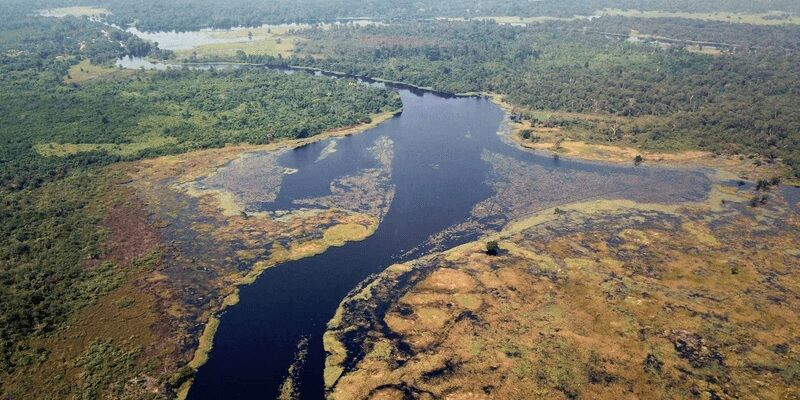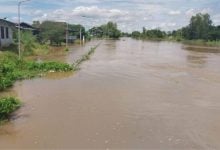Discovering Ruki: The world’s darkest river

Ruki, a tributary of the Congo River, has been identified as the world’s darkest river due to its near-black colouration which makes it almost impossible to see anything, even one’s reflection.
Scientific tests revealed that this extreme darkness is due to the high level of dissolved organic matter in the water, which originates from the surrounding dense forests. This dark colour is derived from carbon-rich compounds washed out from decomposing vegetation and swept by rainwater and flooding into the river.
Leading researcher of the project, Travis Drake, described Ruki River as a natural forest tea steeped with carbon-rich vegetation. The result is water that makes Ruki River even darker than the Rio Negro, a tributary of the Amazon River, known as the world’s largest blackwater river.
The organic compounds washed out from this vegetation absorb light, so the higher the concentration, the darker the water, Drake explained.
“It’s like brewing tea with a lot of tea leaves, it gets especially concentrated.”
From an aerial photograph, it may not appear particularly dark due to light reflection from the sky, but a closer look reveals its deep darkness. Scientists from ETH Zurich University in Switzerland measured the darkness of the Ruki River and found it to be 1.5 times darker than the Rio Negro. Although Ruki River only makes up 5% of the Congo Basin, it contributes to 20% of the total dissolved carbon in the entire Congo Basin.
Ruki has the highest DOC, or Dissolved Organic Carbon, value in the world. The water in this river contains more organic carbon compounds than the Congo River by four times and 1.5 times more than the Rio Negro, said the scientists. They added that if you dip your hand into this river, its darkness would almost prevent you from seeing your hand in the water, reported Sanook.
Latest Thailand News
Follow The Thaiger on Google News:


























